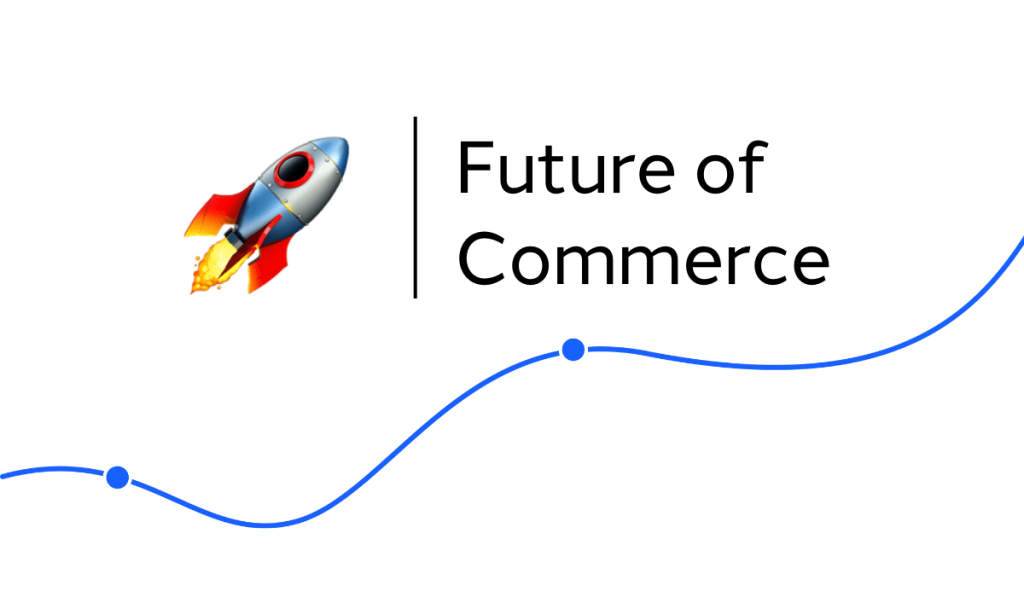Welcome to Katalys Connect – your weekly shortcut to the latest in performance marketing.
[Read time: 4 minutes]
What’s in this issue? Each Tuesday, we pack the latest trends, actionable insights, and industry breakthroughs into a quick read – ensuring you’re not just keeping up, you’re staying ahead.
- Monetization: Discover how Reddit and AI are shaking up the ad space, from publishers finding new ways to engage audiences to debates over the quality and ethics of AI-generated content.
- Growth: Explore how new AI tools from social giants like Meta and TikTok aim to simplify ad creation for small businesses, while Snapchat bets on new ad formats to attract and engage users.
- The Future of Commerce: Learn how AI and early deals are transforming retail strategies, from AI-driven virtual try-ons by Google to retailers racing to capture holiday sales amidst election uncertainties.

Publishers Explore Reddit • With no formal publisher program, publishers like Newsweek, The Hill, and Wirecutter experiment with Reddit’s new tools and strategies to increase brand awareness and referral traffic.
- Reddit’s new Pro dashboard helps publishers discover mentions across subreddit communities, providing context and identifying new engagement opportunities beyond mainstream forums.
- Publishers are also leveraging AMAs (Ask Me Anything) to engage with Reddit users and build credibility, finding more meaningful conversations compared to other social platforms.
ChatGPT’s Search Revolution • Traditional search engines rely on keywords and rankings, but AI models are changing the game with real-time, personalized conversations that go beyond links.
- Conversational AI opens doors for search marketers to create personalized campaigns, develop engaging content for AI interfaces, and boost conversion rates through real-time user interaction.
- Despite its potential, AI-powered search tools face challenges with accuracy, often generating responses that sound convincing but may not be factually correct, raising concerns about misinformation and reliability that must be addressed.
AI Content Gets the Axe • Ad management firm Mediavine banned a publisher for overusing AI-generated content, highlighting concerns about quality and signaling industry-wide scrutiny of AI practices.
- Mediavine emphasizes its stance against low-value AI content, advocating for legitimate publishers and developing tools to swiftly identify and eliminate mass-produced AI content that threatens the integrity of the open web.
- Overreliance on AI content can lead to loss of ad revenue, domain devaluation, and reputational damage, as publishers face potential bans from major ad networks.

Ads Made Easy • Social media giants like Reddit, TikTok, Meta, and Snap are launching generative AI tools to help marketers create ad content faster, aiming to attract small businesses and keep ad dollars in-house.
- Snap introduced AI-powered lenses and an AI copy generator, TikTok launched its creative AI suite Symphony, Pinterest debuted Pinterest Ad Labs for testing new AI tools, and Meta expanded its AI features to create image variations, all designed to simplify ad creation for smaller businesses.
- While these tools can quickly generate content, marketers remain cautious about their effectiveness in creating brand-specific campaigns, noting that AI-generated ad copy still requires human oversight to ensure it aligns with brand ethos.
New Sponsored Snap • Snapchat rolls out new ad features like Sponsored Snaps and Promoted Places to attract SMB’s, leveraging data-driven insights and boosting local engagement.
- Sponsored Snaps will place ads directly into user inboxes — although this move risks user pushback, as seen with Meta and LinkedIn’s experiences with ads in private messaging spaces.
- Snapchat is also enhancing its analytics suite, offering marketers privacy-safe insights on user behavior, such as store visits and in-app interactions, to improve ad targeting and effectiveness without alienating users.
Inside Roblox’s Marketing Playbook • Roblox unveils “The Brands Experience,” a virtual space for marketers to explore innovative ad formats and successful campaigns, aiming to boost its advertising appeal.
- The new branded world lets marketers explore Roblox’s ad units through immersive case studies from brands like Walmart, Universal Pictures, and Paris Hilton’s 11:11 Media, providing a user-centric view of in-platform advertising.
- While Roblox attracts marketers with its large user base, retaining user attention remains a challenge, prompting a shift toward creating community-driven, engaging content rather than traditional ad formats.

Retailers React to Election Jitters • Concerns over the upcoming presidential election are driving retailers to launch holiday deals earlier than ever, with many starting sales well ahead of the traditional season.
- With five fewer days between Black Friday and Christmas, major players like Amazon, Lowe’s, and Home Depot are starting holiday deals earlier to capture consumer spending ahead of possible election-related slowdowns.
- A recent Bankrate survey shows that 48% of holiday shoppers will begin their shopping in August, September, or October, reinforcing the trend of an earlier holiday season.
Online Shopping Gets Smart • As AI tools reshape the retail landscape, with 72% of consumers demanding smarter shopping options, major players like Amazon and Walmart are betting big on personalized shopping experiences.
- Retailers using AI assistants report a 40% boost in cross-selling margins and an 11% increase in basket size, while visual search tools extend shopping sessions by 30%, driving engagement and conversions.
- Despite early gains, many retailers remain cautious, pointing to high costs and unreliable data as barriers to adopting AI tools widely, with initial tests by Amazon and Ikea revealing mixed results.
Google Says Yes to the Dress • Google Shopping expands its generative AI-enabled virtual try-on feature to dresses, coinciding with New York Fashion Week and partnering with a ready-to-wear label for exclusive previews and pre-orders.
- The new tool addresses the dissatisfaction of 59% of shoppers who found items looked different online than expected, with virtual try-ons generating 60% more high-quality views and driving more visits to brands’ websites.
- By offering try-on options with real models in sizes XXS-XXXL, Google enhances inclusivity and diversity, catering to the 42% of shoppers who feel underrepresented by standard model images.


